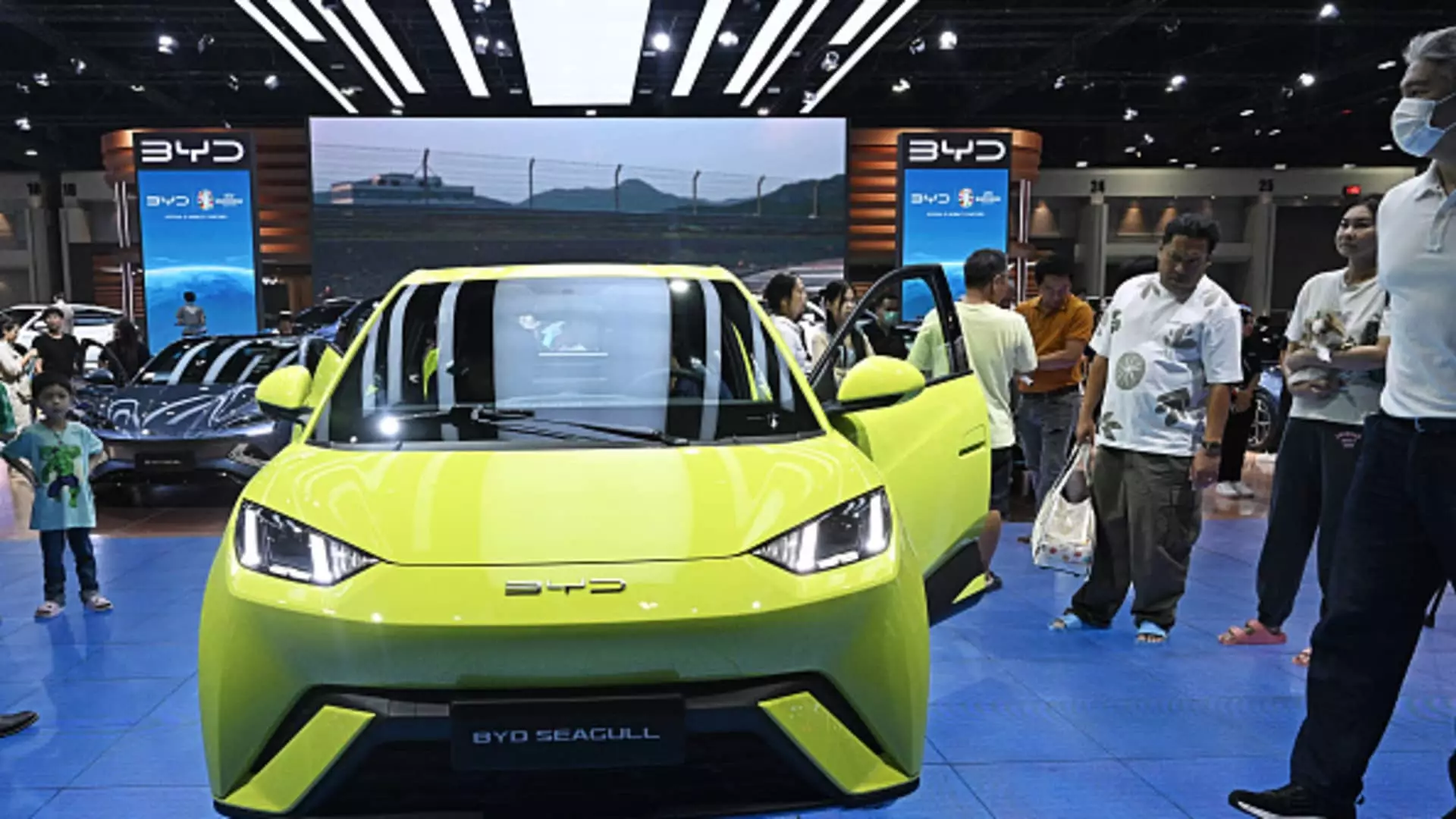The European Union is gearing up to unveil its new tariff rate plan for Chinese electric vehicles (EVs) this week. This move comes amidst growing concerns about low-priced, subsidized imports from China flooding the market. With the EU currently imposing a standard 10% duty on imported EVs, there are speculations that these fees will see a significant increase for Chinese EVs starting July 4.
Analysts from Citi have suggested that the tariff rate on Chinese EVs could potentially be raised to around 25-30% from the current 10%. In a risk scenario with a 40% probability, this rate could even escalate to 30-50%. On the other hand, senior investment strategist Anthony Sassine anticipates the tariff rates to fall between 10% and 20%, possibly leaning towards the higher end of 20% following the recent European Parliament elections.
The European Commission initiated an investigation last October into subsidies provided to EV manufacturers in China, highlighting the economic threat these subsidized imports pose to the EU’s EV industry. Despite the looming tariffs, there are doubts about their effectiveness in curbing the competitive edge of Chinese manufacturers. Sassine pointed out that Chinese EV makers are highly efficient and advanced, making them still more competitive than their EU counterparts.
China’s EV industry has experienced significant growth due to incentives and government support, sparking concerns about overcapacity in the U.S. and Europe. The U.S. Energy Secretary previously warned about the possibility of China flooding the U.S. market with its electric vehicles, leading to a 100% tariff increase on Chinese EV imports. Turkey also recently announced a 40% tariff on vehicle imports from China.
Chinese Manufacturers’ Strategies
Chinese EV manufacturers like Xpeng, BYD, and Nio are actively expanding their presence in Europe, despite the ongoing tariff concerns. BYD announced plans to build a new factory in Hungary, while Chery entered a joint venture with Spain’s Ebro-EV Motors to develop new EV models. Professor Cedomir Nestorovic mentioned that many Chinese manufacturers are exploring the EU market and looking for ways to circumvent tariffs, including setting up factories within Europe.
While the EU’s move to revise tariff rates for Chinese electric vehicles aims to protect its domestic industry, the effectiveness of such measures remains questionable given the competitiveness and efficiency of Chinese manufacturers. As the global electric vehicle market continues to evolve, it is essential for policymakers to strike a balance between protecting local industries and fostering innovation and competition.

